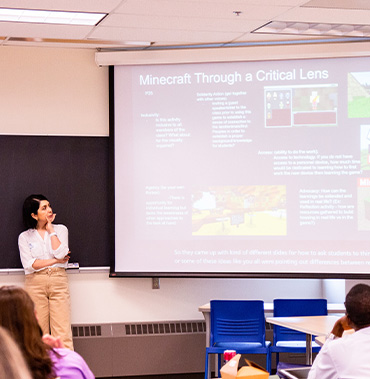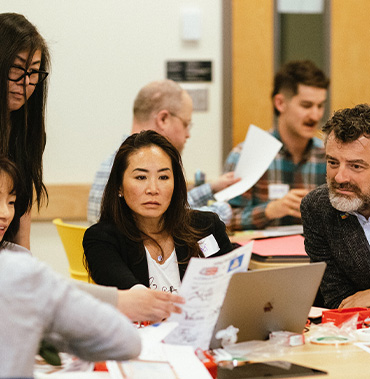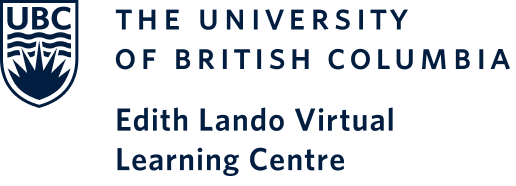
THE MASTER OF EDUCATIONAL TECHNOLOGY (MET)
Virtual Inclusive Makerspace
About the Makerspace
The unequivocal implementation of equity, diversity, inclusion, decolonization, anti-racism (EDIDA) frameworks through maker challenges and provocations within makerspaces, is a fundamental component and priority of the virtual inclusive makerspace. The purpose of this space is to provide inclusive resources, big ideas, critical questions, and a space to network with other makers and educators, for the continued effort of ensuring the ongoing awareness and expansion of understanding within and for inclusive education. This website is committed to addressing racism, discrimination and reducing inequalities in education through the meaningful implementation of educational technology within a virtual makerspace environment. A highly critical, responsive, and inclusive makerspace starts with a culture that promotes equity and reduces disparities.
21st century learning means moving beyond the traditional constraints and confinements of a one-sized, teacher-directed curriculum towards developing a creative, divergent, and rigorous learning environment that is personalised and differentiated. This 21st century learning environment should engage students and learners through authentic critical challenges and provocations and are the aim of this virtual inclusive makerspace. Through the act of making and tinkering (Graves & Graves, 2017), students and learners are able to engage in real-world applications, relevant to their own lives, in a space that builds innovation, critical thinking, multiliteracy and multimodality skills, alongside communication, and collaboration skills.
With the three fundamental elements required for effective maker learning being the commitment to best-practice and research-supported pedagogy (Barnett, 2020), the commitment to educational technology and meaningful and purposeful non-digital and digital tool implementations (Dousley, 2017), and the development of soft skills and mindset (Rosenheck, 2020), the “maker movement has fundamentally changed the way educators and educational researchers envision teaching and learning” (Halverson & Peppler, 2018). Yet according to Spencer (2017), many educators do not know how to effectively infuse, implement, identify, and design curriculum content through inclusive makerspace structures. As well, many educators struggle with ensuring the design and execution of equitable, inclusive, diverse, decolonized, and anti-racist spaces that are culturally relevant, responsive, and sensitive (Kye, 2020).
THIS is the purpose of the inclusive virtual makerspace. Welcome to a space that is responsive, adaptive, and committed to ongoing refinement through the cultivation of creative and growth mindsets in all its users.
Land Acknowledgement
The Master of Educational Technology (MET) Program at the University of British Columbia is situated on the unceded traditional territories of the [xʷməθkʷəy̓əm (Musqueam), Sḵwx̱wú7mesh (Squamish), and səlilwətaɬ (Tsleil-Waututh)] Nations. Within this virtual and connected inclusive makerspace, we wish to acknowledge our traditional hosts and honour their welcome and graciousness to the peoples who seek knowledge here. Many of us working, living, playing, and visiting these lands are uninvited settlers and as such we encourage you to become allies and accomplices of this work.
Goals for the Virtual Inclusive Makerspace

Goal 1
Create an immersive and inclusive virtual makerspace that supports diverse learners through the critical, responsive, and reflective practice of designing a space that is welcoming and supportive of all peoples. Projects, tasks, provocations, and challenges that address real-world and immediate problems pertaining to different cultures, races, genders, sexual orientation, ability, divergence, the environment, and sustainability are prepared in collaboration with diverse community members, academics, and practitioners to ensure all people’s needs and representations are included.

Goal 2
Through the investigation of the culture of makerspace environments, the goal is to change the landscape of traditional spaces through infusing equity, diversity, inclusion, decolonization, and anti-racism frameworks through the focus of allyship into maker design, maker learning, maker mindset, and best-practice pedagogical implementation.

Goal 3
Based on empirically-supported and research-driven theories and ideologies, provide inclusive and accessible provocations, challenges, lessons and unit plans, assessments, resources, and design practices that utilize no-tech, low-tech, and high-tech options (Kafai & Jayathirtha, 2020) to empower all learners and makers.















